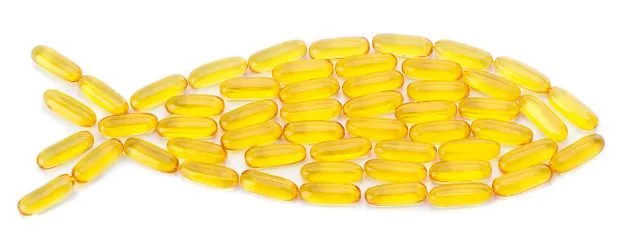
- Share on Facebook73
- Share on Pinterest
- Share on Twitter
Growing up, you may have heard your parents or grandparents recommending a spoonful of cod liver oil for virtually any ailment. While this may have seemed abhorrent to you at the time, as cod liver oil certainly isn’t the best-tasting substance, it turns out that our parents and grandparents were right: cod liver oil has potent immune-boosting abilities, as well as many other benefits.
This age-old natural remedy is the essential oil derived from Atlantic cod livers. It was reportedly first used in England in 1789, for the treatment of rheumatism. Throughout the years, it has been used for a variety of ailments, including rickets, and became known as a sort of ‘all-purpose’ tonic by many people.
One of the main benefits of cod liver oil is that it is an extremely good source of omega-3 fatty acids, including both docosahexaenoic acid (DHA) and eicosapentaenoic acid (EPA). Omega-3 fatty acids have been linked strongly to anti-inflammatory and heart-protective properties.
They may also help to alleviate symptoms of eczema, depression, attention deficit disorder (ADD) and certain respiratory ailments. DHA specifically has been linked to optimal cognitive function.
This oil is also high in vitamins A and D. Vitamin A is a powerful antioxidant vitamin that is most commonly associated with eye health, though it has many other functions. Vitamin D, also known as the ‘sunshine vitamin,’ is linked to cancer prevention, balancing the endocrine system, detoxifying heavy metals from the brain and a lowered risk of many chronic ailments. Especially for those who do not get enough sunshine, cod liver oil can provide a great source of vitamin D.
Cod liver oil may help to reduce the pain of arthritis and stiff joints in general, reduce the risk of diabetes, heart disease, multiple sclerosis (MS), breast cancer and upper respiratory infections, help wounds heal faster, boost breast milk production in lactating women, and provide support to the immune system in general.
So, why fermented cod liver oil over other types? Fermenting is the best method of producing this oil, as it is done at a cold temperature and keeps the omega-3s and vitamins A and D intact.
It also makes these nutrients more easily absorbed by the body. When this oil is processed by other methods, it is often subjected to high heats, which reduces the vitamin content.
In these cases, vitamins A and D are often added back into the oil in synthetic form, making them more difficult for the body to process. It can also lead to vitamin A toxicity if this vitamin is added back into the oil in an improper proportion, and too much of the oil is taken. Fermented cod liver oil is also the most digestible form of this oil, and helps to support the healthy bacteria in the gut.
 When choosing a fermented cod liver oil supplement, make sure you trust the source, as some cod may contain high levels of mercury and other environmental pollutants. Your best bet is to choose one inspected and certified by an agency you trust.
When choosing a fermented cod liver oil supplement, make sure you trust the source, as some cod may contain high levels of mercury and other environmental pollutants. Your best bet is to choose one inspected and certified by an agency you trust.
While fermented cod liver oil is certainly healthy, its taste can be quite unpleasant to some. To combat this, follow your morning teaspoon with a sip of smoothie or a hot beverage. While it is generally considered safe, if you have a medical condition, talk to a health professional before starting a regimen with this oil, just in case.
-The Alternative Daily
Sources:
http://wellnessmama.com/13154/fermented-cod-liver-oil-vs-fish-oil
http://holisticsquid.com/benefits-of-fermented-cod-liver-oil
http://www.medicalnewstoday.com/articles/270071.php
- Share on Facebook73
- Share on Pinterest
- Share on Twitter

